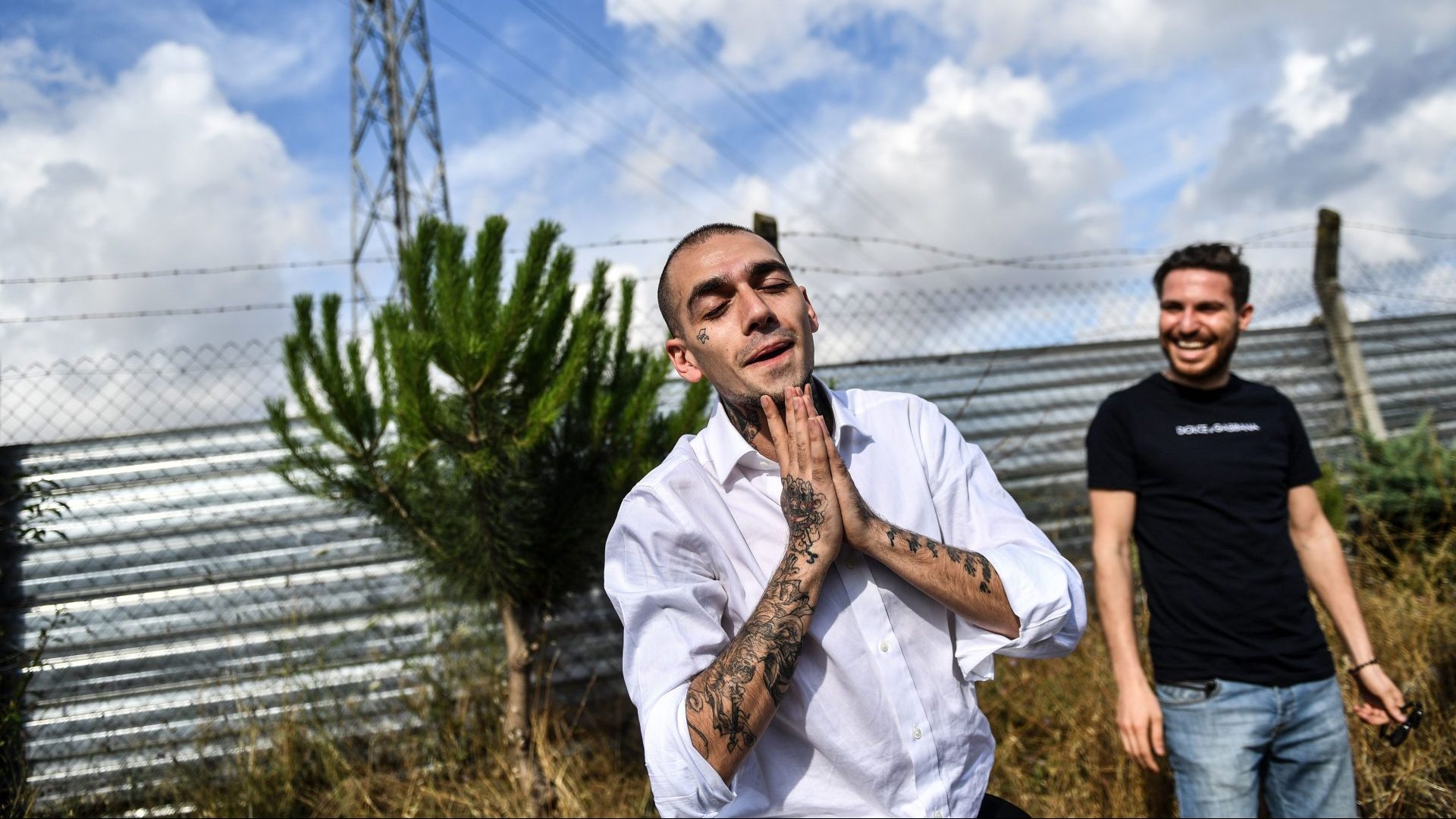Youthful rebellion is pop’s bread and butter, usually treated by those old
enough to have been there and done that with knowing tolerance. But on
the edge of Europe, a lyric suggestive of even the mildest transgressions can
get you jailed.
At the end of last month the Dutch-Turkish rapper Murda was brought before a Turkish court for lyrics that mentioned smoking marijuana in his songs Duman (Smoke), Pahalı (Expensive) and Eh Baba (Hey Father). “Encouraging the use of narcotics” is an offence under Article 190 of the Turkish Criminal Code 5327 and the references to joints, “rolling and burning”, and indeed “smoke, smoke, smoke, smoke, smoke, smoke, smoke” in these three songs have resulted in the imposition of a sentence of four years and two months in prison.
Writing on Instagram, the Amsterdam-born 38-year-old, who released his first album in 2008 and built a career in the Netherlands before he went to Turkey, was clearly still in a state of shock. He expressed his worries about being separated from his three-year-old daughter, but maintained “How proud I am to be Turkish”. He also emphasised how his music had been a means of communication across borders and cultures: “We laughed and danced together to all these songs. The songs are also loved by people that don’t speak the Turkish language. Those people started to sing/rap Turkish
words after listening to my music.”
Murda is appealing against his sentence, but he is not the first artist from Turkey’s contemporary rap scene to face the censure of the authorities. Back in 2018 Ezhel, Murda’s later collaborator on the hit album Made In Turkey (2020), was arrested for the same offence, although his victimisation seems to have had a more complex underlying motivation.
Ezhel’s sensational 2017 debut LP Müptezhel (Dope head) was a watershed for Turkish rap, bringing together hip hop, reggae, dub and trap with what he termed “Anatolian Urban Core”. It was indeed a distinctively Turkish take on rap, deeply rooted in working-class life in his native Ankara. Şehrimin Tadı (Taste of My City) (2017) from the album was the then 27-year-old’s ode to his hometown, but it was under no illusions about the grittiness of the capital, contrasting with the romance and history of Istanbul – “Soot, rust, dirt, coal, plastic, garbage, tyres, exhaust, marijuana”, he rapped as he evoked the smells of the city.
The references to marijuana in Şehrimin Tadı were, ostensibly, the reason for Ezhel’s arrest. But tensions were high in Turkey at the time – the country was in the first months of its debt crisis and had been in a state of emergency for two years following an attempted coup. Fifty thousand people had been arrested during that time and severe limits put on freedom of expression, and it was obvious that it was less the drug references and more the suggestion of dissent and protest that put a target on Ezhel’s back.
As the academic and journalist Kenan Behzat Sharpe noted on Twitter, the line “Ankara has a sea but no shore” was a clever play on words, referring to the city being both landlocked and the birthplace of Deniz Gezmiş (“deniz” means “sea”), the Marxist-Leninist co-founder of the guerrilla People’s Liberation Army of Turkey, who was hanged by the military-backed regime in 1972.
Meanwhile, the video for the song, which had already drawn over 30 million views by the time of Ezhel’s arrest, contained unflattering shots of the Ankara slums, including a glimpse of a banner that reproduced lines from the poet Adnan Yücel’s famous anti-oppression allegory Eryüzü aşkın yüzü
oluncaya dek (Until the earth becomes the face of love) alongside the faces of the martyrs of the Gezi Park protests of 2013. None of this was likely to endear Ezhel to the Erdoğan regime.
After serving three weeks on remand, Ezhel was acquitted and released, but he has not stayed in Turkey to see which of his lyrics would provoke the ire of the anti-narcotics police next and is now making a career in Berlin. The collaborative album Lights Out (2019), made with rapper Ufo361, who grew up in Berlin’s Turkish enclave of Kreuzberg where Turkish rap was in fact born, was Ezhel’s follow up to Müptezhel.
Ezhel’s solo work has become more overtly political in Berlin, with Olay
(Incidents) (2019) directly referencing the state of emergency, while its video
showed footage of political unrest in Turkey. The following year’s Allah’ından Bul said “Look I’m out and free/ But the minds are imprisoned”.
But back in Turkey, Ezhel’s contemporaries have not been discouraged from speaking out. The rappers Khontkar and his collaborator and fellow İzmirli Young Bego were arrested the same week as Ezhel, but still their 2020 track Kayıp Oğlan (Lost Boy) made reference to “getting high”, and some 16 months later 17 Turkish rappers released the track Susamam (I Can’t Stay Quiet), a track taking aim at Turkey’s social problems. “Our weapon is our language”, the track proclaimed. It’s a weapon that the authorities have so far failed to neutralise.
TURKISH RAP ON TRIAL in five songs
Ezhel, Şehrimin Tadı (2017)
Taste of My City was the rapper’s warts-and-all tribute to his hometown
of Ankara, but it drew the attention of the authorities for its references to
marijuana and hints of dissension.
Khontkar, Mary Jane (2018)
The rapper from İzmir’s ode to marijuana boasted “everyone will
lose their mind when they taste it”, and resulted in his arrest for
“encouraging the use of narcotics”.
Ezhel and Ufo361, Wir sind Kral (2019)
We Are Kings was the lead single from Ezhel’s collaborative album with the
German rapper of Turkish descent Ufo361, recorded in his new home of
Berlin. It found him boasting “we play in the middle of Europe”.
Murda and Ezhel, AYA (2019)
This Latin-flavoured trap mega-hit from Made In Turkey has garnered
almost 210 million views on YouTube and over 100 million Spotify streams.
Murda and Ezhel, Duman (2020)
This track, also from the Made in Turkey album and its title meaning simply “Smoke”, was one of those named in Murda’s prosecution for breaking anti-drugs laws.




